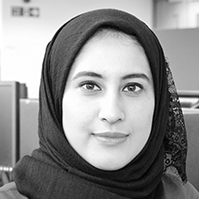The relationships between cultures are often characterized by asymmetries of power. The world we know today is made of a dominant center and exterminated suburban suburbs. The latter have little bargaining power in the economic, political and cultural sphere. Immigrants come mainly from these peripheral areas with the desire to embark on a path of social emancipation, that is, to access the center by reading their affirmation based on the parameters of the winning model. The “hybridizations” already begin in the country of origin through an anticipatory socialization of the winning model. Let us see what the london immigration lawyer tells.

The Society and the Processes
Every society is multicultural also because different value systems coexist. In Italy, for example, there are those who adhere or not to certain visions of the family (just think of the contractual or sacramental model and the disputes over de facto families or homosexual unions) and we find opposing positions also on the themes of peace and war and even the presence of political organizations that refer to non-democratic models and experiences.
- It is interesting to note that, beyond the dominant rhetoric on secularism, religion continues to be present in the public sphere: the school calendar is marked by religious festivities and the inauguration of the school and academic year often takes place with a mass during the festivities of the patrons of the cities not only the shops but also the public bodies remain closed; not to mention the influence of religion on certain laws (for example the diatribes on divorce, abortion or assisted procreation) or the request to introduce Christian references in the European constitution.
- Moreover, let us think of the figure of the religion teacher in the school, a public employee who acts under a religious regulatory control with regard to sexual orientation and marital status.
It is good to remember that multiculturalism is not created by the presence of immigrants. They add other differentiations to those already existing in every society and contribute to making them more visible.
Social Transformations
The ongoing social transformations require an innovative method of intervention that we define with the term “interculture”. We do not mean therefore an ethical principle or a goal to be reached but the setting of a work practice that can help us restore a plural memory by exploring our multicultural contexts.
Intercultural practice involves considering immigrants not so much representatives of a culture as of a social project of emancipation. Immigrants experience a complicated process of identity adjustment aimed at finding a “combinatorial unit” between elements belonging to both the new context and the context of origin. In this process not only culture but also gender, social background, education level, type of employment, reception policy in the territory, the type of migration project, etc. are affected. Interculture triggers a process of extending the borders of democracy through a culture of participation based on the recognition of differences.
- The goal is to establish a new citizenship pact able to re-establish the symmetry necessary to create spaces for negotiation and manage the social transformations underway guaranteeing social cohesion.
This process intends to include new subjectivities and not “communities” (it is up to these subjectivities to decide how to organize themselves in collective terms: whether on the religious, linguistic, or that of state or professional belonging, or on the basis of indigenous associations or trade union organizations, etc).

